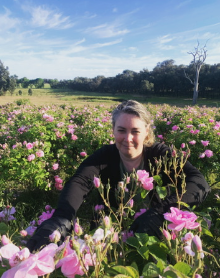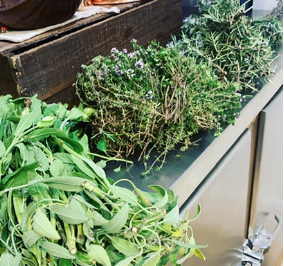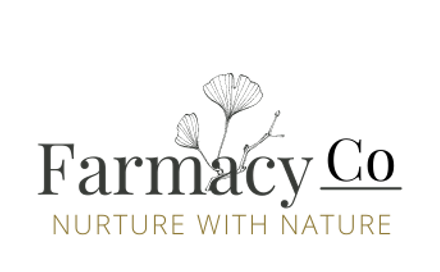Bioregional Herbalism
 What is bioregional herbalism? Bioregional herbalism is an herbal practice that seeks to put the practitioner in greater connection to the natural world around them, and to improve the sustainability of herbalism by emphasising the use of local herbs.
What is bioregional herbalism? Bioregional herbalism is an herbal practice that seeks to put the practitioner in greater connection to the natural world around them, and to improve the sustainability of herbalism by emphasising the use of local herbs.
from our friends at Chestnut herbs –
In a nutshell, this means that we do all of the following:
- Source our healing herbs locally as much as possible from 1) small organic farms or 2) abundant weedy medicinals that have a near-global distribution
- Choose cultivated herbs or non-native opportunistic medicinals over wild plants that are threatened, endangered, or at risk of becoming so
- Educate ourselves about sustainable wildcrafting
- Recognise that affordability is an impediment to many folks having access to herbs
- Consider the next seven generations (and beyond) of plants, animals (including humans) and other life forms who will inhabit the earth
- Cultivate a practice of gratitude and reciprocity with the plants and the elements that sustain and nourish them
- Give back to the plant world by growing rare or endangered medicinals and working to protect vital natural ecosystems from development
At FarmacyCo Hq I’m often asked if I make certain things with certain herbs often the fad of the moment and I use this as an opportunity to explain our practices and herbal philosophy.
Have you ever thought about what makes herbs ‘safe’ for import when purchasing from overseas and what biosecrurity measures are in place? I question the efficacy of imported plant material to make it safe.
How long is it between harvest and use?
How do they dry them?
What are the farming methods? are they spraying? are they steam fumigating dry herbs?
The most common cause of salmonella in food is the herbs and spices from imported products* a study in the US found that 12% of the herbs and spices imported were contaminated with pathogens like Salmonella or were filthy with insect parts or animal hair.
Herbs and spices imported into Australia go through irradiation –

